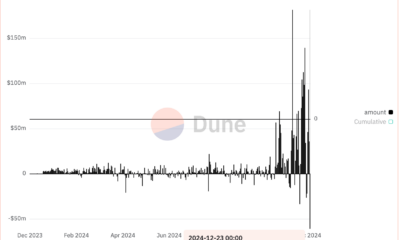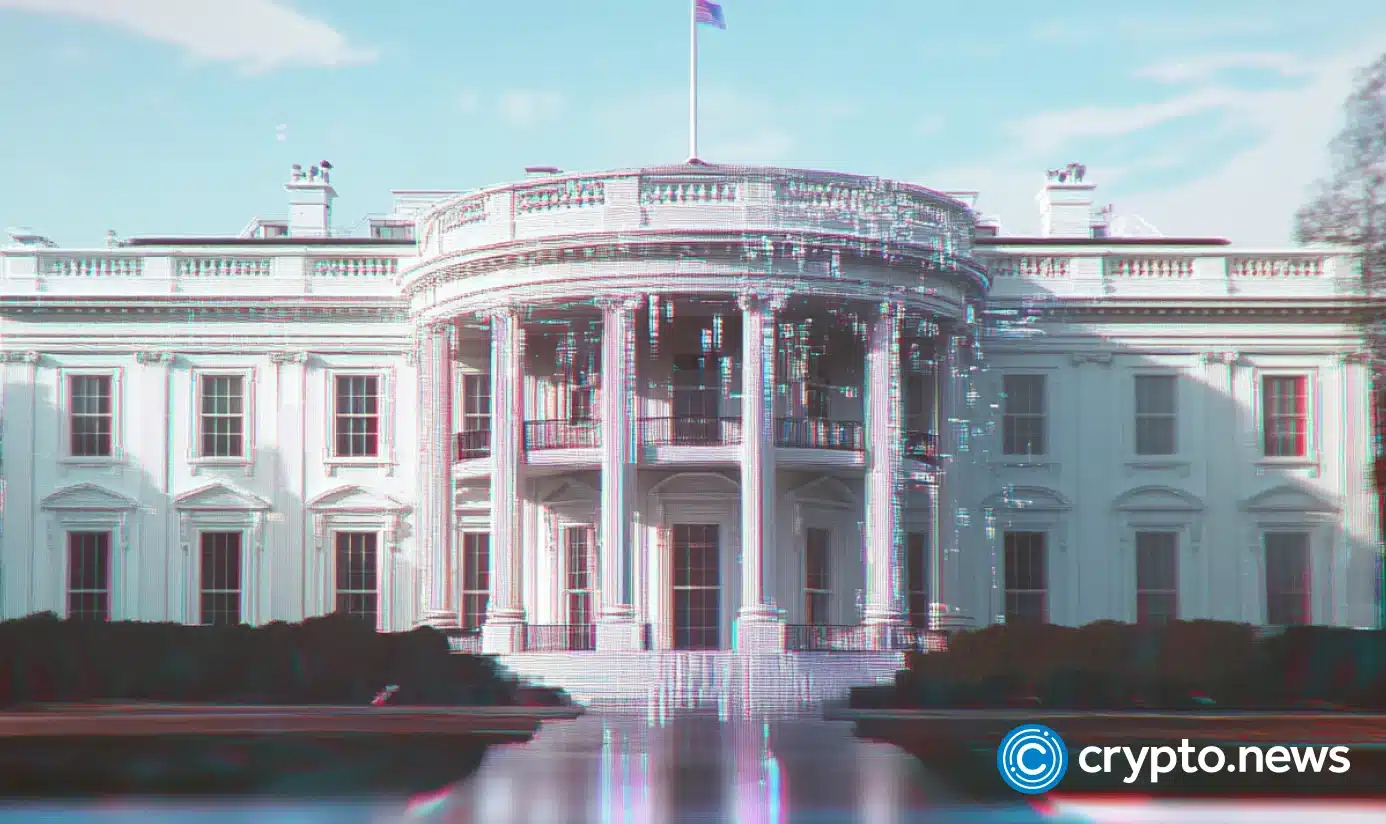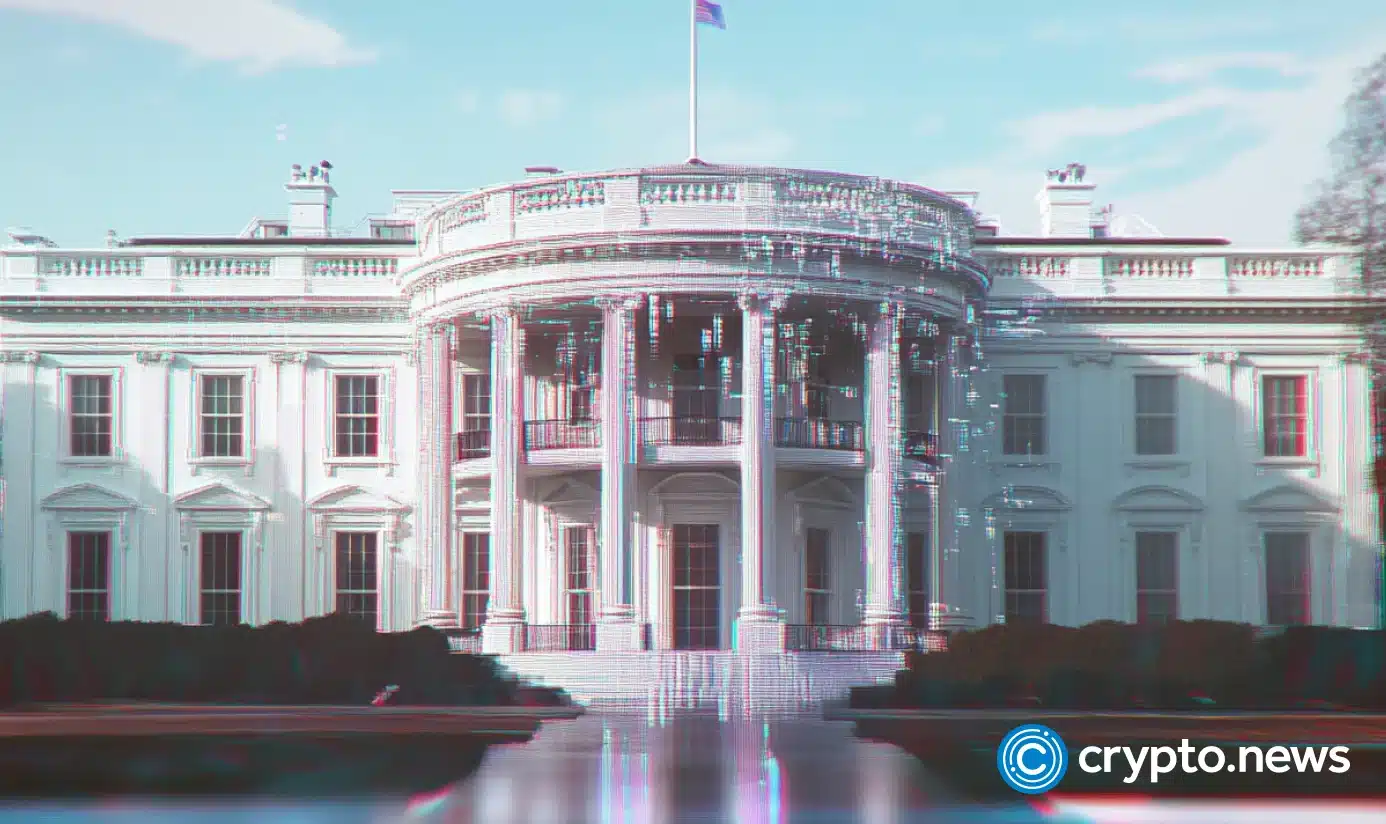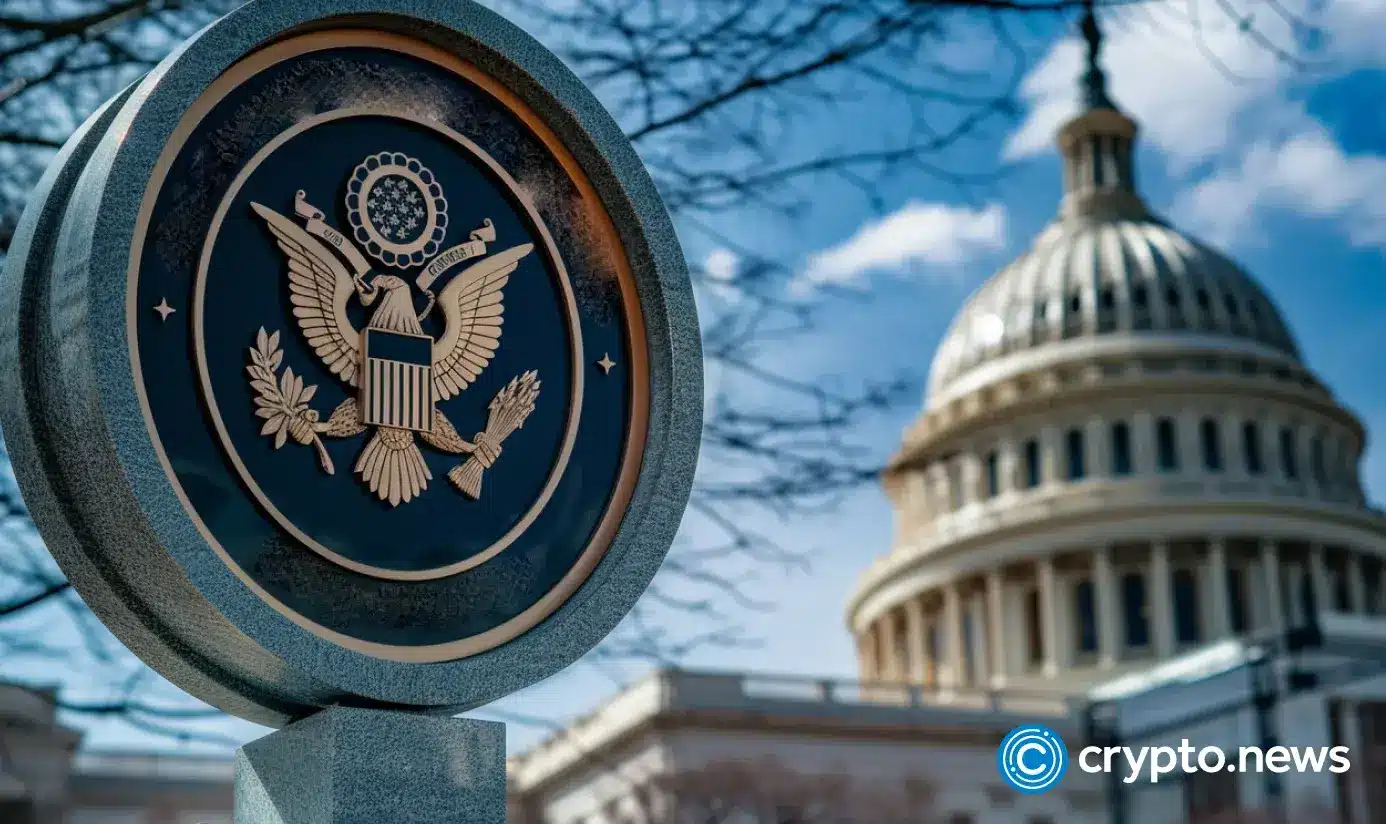Feature
Another country launches investigation against Telegram: What’s going on
Published
4 months agoon
By
admin

An investigation has begun against Telegram in South Korea on similar charges brought against the messenger in France.
Yonhap News Agency, citing the police, reported that the platform is accused of aiding and abetting sexual crimes. The head of the South Korean National Police Investigation Agency, Woo Jong-soo, said that Telegram is not providing the data necessary for the investigation, including account information.
Yonhap notes that this is the first investigation against Telegram in South Korea. It concerns eight bots that generate fake materials with sexual content and channels that distribute these images. From Aug. 26 to 29, the police received 88 complaints and identified 24 suspects.
South Korean law enforcement officials want to cooperate with French authorities. According to them, a similar problem worries representatives of other countries, including the United States.
Telegram Blocked in Indonesia
Jakarta Globe also reported after the investigation began in France, citing a statement by Indonesian Minister of Communications and Information Technology Budi Arie Setiadi, that Indonesian authorities are considering blocking Telegram in the country.
The minister said that the authorities are concerned about the spread of illegal content on Telegram, including the alleged involvement of Pavel Durov’s project in promoting online gambling and distributing pornography.
“I would prefer to shut down Bigo Live and Telegram immediately, but a team needs to conduct further studies first.”
According to him, the Indonesian government has repeatedly approached Telegram representatives and the team of another live-streaming app, Bigo Live, asking them to improve content moderation. However, the companies must still implement more effective measures to meet the country’s regulator’s requirements.
The investigation against Telegram in France
Telegram founder Pavel Durov was detained in France. He has been charged with conspiracy in sexualized violence against children, drug trafficking, and several other crimes that were committed thanks to the ability to remain anonymous on Telegram.
After four days in custody, Durov was released on bail of €5 million, banned from leaving France, and ordered to report to the police twice a week.
Telegram stated that the platform’s moderation meets standards, the messenger team complies with EU laws, and blaming the platform’s founder for user abuses is absurd.
New details of Durov’s interrogation
Earlier, the French newspaper Liberation, citing a source close to the investigation, reported that Durov, during interrogation in Paris, said that he had communicated with representatives of the General Directorate of Internal Security of the French Ministry of the Interior.
The publication claims that the messenger’s founder allegedly said that he opened an official communication channel with French counterintelligence as part of the fight against terrorism. This concerns a certain “hotline” and a special email address. The exchange of information via this communication channel made it possible to prevent several terrorist attacks.
According to Liberation, Durov expressed his willingness to cooperate with law enforcement agencies after his arrest and gave them his phone with the access code to it.
However, the information presented in the Liberation publication has not been officially confirmed. Representatives of the French investigation and Pavel Durov did not comment on it.
Telegram accumulates crypto assets
According to the Financial Times (FT), Telegram held about $400 million in cryptocurrencies in 2023. FT, citing financial documents, added that in 2024, the messenger sold Toncoin (TON) worth more than $244 million.
In addition, last year, the company received revenue of $342 million, operating losses of $108 million, and total losses of about $173 million after taxes. Telegram also raised about $2.4 billion in debt financing, maturing in 2026.
Telegram’s crypto initiatives continue to develop
Telegram’s cryptocurrency initiatives began to develop especially rapidly after Durov again spoke about creating decentralized financial instruments based on the social network in December 2022. He revealed the tools for trading and storing cryptocurrencies. The team’s plans included creating non-custodial crypto wallets and decentralized exchanges.
Durov’s initiative responded to the collapse of the centralized crypto exchange FTX in November 2022. He believed that the crypto industry should return to its decentralized roots. The developer should have specified when the messenger’s new tools would appear on the market.
“We, developers, should steer the blockchain industry away from centralization by building fast and easy-to-use decentralized applications for the masses. Such projects are finally feasible today.”
Since then, Telegram has begun actively strengthening its presence as a tool for cryptocurrencies and decentralized finance (defi). The messenger now has its cryptocurrency wallet, mini-games for earning cryptocurrencies, and more.
After Durov’s arrest in France, the community had concerns about the messenger’s further development. However, the Telegram team concluded they had a plan in case of force majeure.
What will happen to Telegram?
The concerns about the messenger are primarily related to the problem of content moderation, which is why, according to the authorities, the messenger is actively used by criminals.
After the accusations in France, the authorities of other countries may follow suit and begin to analyze Telegram’s activities more actively. However, no other charges have been brought against Durov yet.
Source link
You may like


SCENE’s 2024 Person of the Year: Iggy Azalea


BTC Risks Falling To $20K If This Happens


Most Layer 2 solutions are still struggling with scalability


Here’s why Stellar Price Could Go Parabolic Soon


Perp-Focused HyperLiquid Experiences Record $60M in USDC Net Outflows


Experts say these 3 altcoins will rally 3,000% soon, and XRP isn’t one of them
Bitcoin
Microsoft says ‘no’ to Bitcoin, corporates say ‘bring it on’
Published
2 days agoon
December 22, 2024By
admin

Microsoft shareholders nixed a Bitcoin treasury idea, but other big-name companies disagree with this strategy. Here’s why.
Bitcoin (BTC) is often likened to “digital gold,” with its fixed supply of 21 million coins making it a potential hedge against currency devaluation and inflation.
And nowadays, Bitcoin’s unique characteristics make it an attractive addition to corporate treasuries. It can balance exposure to traditional assets like cash, stocks, and bonds.
Bitcoin is also one of the most liquid assets globally, and its historical performance has shown significant long-term value appreciation — it reached an all-time high of over $108,000 on Dec. 17.
But there’s no shortage of risks.
A board might avoid adopting a Bitcoin treasury due to the coin’s extreme price volatility, which can lead to substantial losses during downturns. Also, regulatory uncertainties pose potential threats as governments refine crypto policies. Additionally, liquidity challenges during market slumps can amplify price drops when offloading assets.
So it’s no wonder that, on Dec. 10, Microsoft’s board channeled the long-standing crypto skepticism of its co-founder, Bill Gates, and recommended ditching the proposa for a Bitcoin trasury. Gates himself has famously dismissed crypto as “100% based on greater fool theory” — ouch.
Bitcoin evangelist and MicroStrategy Chairman Michael Saylor was busy trying to woo Microsoft when he touted Bitcoin’s own meteoric returns and bragged about MicroStrategy’s stock soaring after their BTC splurge. His pitch? Bitcoin could boost Microsoft’s market cap while acting as a financial guardian angel.
Microsoft’s response? No, thanks.
Meanwhile, at least 10 other companies are embracing the MicroStrategy playbook.
Genius Group
Genius Group, an AI-powered education group, announced in November that it had completed the purchase of 110 Bitcoin for $10 million, at an average price of $90,932 per Bitcoin. The purchase made good on a promise to employ what it called a “Bitcoin-first” strategy where it planed to commit 90% or more of its current and future reserves to be held in Bitcoin, with an initial target of $120 million in Bitcoin.
Earlier this month, the company bolstered its Bitcoin treasury by acquiring 194 Bitcoin worth $18 million at an average price of $92,728 per Bitcoin.
Genius Group CEO Roger Hamilton credited Saylor’s Bitcoin treasury plan for the inspiration, adding that “more companies will see the benefits of establishing a Bitcoin treasury, and will be equipped with the clear steps to follow.”
Worksport
Worksport, a U.S.-based provider of pickup truck solutions, is adding cyptocurency to its corporate treasury strategy.
The Nasdaq-listed company announced on Dec. 5 that it would be adding Bitcoin (BTC) and XRP (XRP) to its treasury assets. This follows a resolution by the company’s board of directors, which approved an initial purchase of $5 million worth of BTC and XRP.
Worksport is committing 10% of its excess operational cash to this corporate pivot, it said in the announcement.
“Our upcoming adoption of Bitcoin (BTC) and XRP (Ripple) reflects our commitment to staying ahead of market trends while prioritizing operational efficiency and shareholder value. As we expand our product offerings and global reach, cryptocurrency has the potential to be a strong strategic complement,” Steven Rossi, chief executive officer of Worksport, said.
Amazon
Amazon shareholders, led by the National Center for Public Policy Research, are urging the Seattle-based company’s board to assess the potential benefits of adding Bitcoin to the company’s financial strategy.
The proposal, submitted on Dec. 6, aims to explore whether Bitcoin could protect and enhance shareholder value, especially amid persistent inflation and declining yields from traditional assets.
The National Center emphasizes Bitcoin’s robust performance—131% growth in the past year and 1,246% over five years—as evidence of its potential as an inflation hedge and a growth asset. The initiative also highlights concerns about the diminishing purchasing power of Amazon’s $88 billion cash reserves due to average inflation of 4.95% over the past four years.
This move represents a broader trend of shareholder proposals influencing corporate policies, leveraging shareholder rights to advocate for financial strategies that address economic risks and enhance long-term value.
MicroStrategy
Perhaps the most vocal of all Bitcoin fans is MicroStrategy’s Saylor who, as of this past week, increased the company’s total holdings to 439,000.
As a result, Saylor has officially strengthening MicroStrategy’s position as the top corporate BTC holder, considering it a long-term store of value.
Saylor, during an appearance on the Dec. 18 episode of the Open Interest show on Bloomberg Television, even voiced his willingness to advise President-elect Donald Trump on crafting a digital assets policy for the U.S.
But Saylor continues to draw scrutiny: Analyst Jacob King has labeled MicroStrategy’s Bitcoin-focused business model a “giant scam,” claiming it is unsustainable and destined for collapse.
MicroStrategy’s business model is a giant scam and relies on a reflexive loop: it issues debt or equity to buy BTC, which drives BTC’s price higher. This increases MSTR’s market cap, boosts its index weight, and attracts more sheep investors. With a higher valuation, it issues… pic.twitter.com/Owyi7mCHaO
— Jacob King (@JacobKinge) December 17, 2024
Marathon Digital Holdings
As one of the largest Bitcoin mining companies, Marathon owns 44,394 BTC. Its business model revolves entirely around mining and holding Bitcoin as part of its assets.
Back in July, the company confirmed it will adopt “a full HODL approach” towards its Bitcoin treasury policy, retaining all that it mines within its operations, in addition to its open market purchases.
“Adopting a full HODL strategy reflects our confidence in the long-term value of bitcoin,” CEO Fred Thiel stated. “We believe bitcoin is the world’s best treasury reserve asset and support the idea of sovereign wealth funds holding it. We encourage governments and corporations to all hold bitcoin as a reserve asset.”
Tesla
Tesla initially bought $1.5 billion worth of Bitcoin in 2021 and currently holds 9,720 BTC. While the Elon Musk-led company remains a significant corporate holder.
BitcoinTreasuries data shows that Tesla is the fourth-largest holder of Bitcoin among U.S. public companies with crypto treasuries (MicroStrategy, MARA Holdings and Riot Platforms are believed to hold more).
In October, the electric vehicle company reportedly moved $765 million worth of Bitcoin to unidentified wallets.
Coinbase
The cryptocurrency exchange holds 9,480 BTC as part of its reserves, leveraging its position as a major player in the digital asset ecosystem.
The Brian Armstrong-led firm holds large amounts of Bitcoin as an exchange and converter. It’s also a trusted institution for custody services, and counts the Bitcoin ETF coterie of BlackRock, Grayscale, 21Shares, Invesco, Valkyrie, Wisdom Tree and Franklin Templeton among its clients.
Therefore, Coinbase has a Bitcoin treasury for itself and oversees others.
Hut 8 Mining Corp
On Thursday, crypto.news reported that Hut 8, a Bitcoin mining company, added 990 Bitcoin to its reserves.
The company spent roughly $100 million to increase its total holdings to 10,096 BTC. The reserve, now valued at over $1 billion, places Hut 8 among the largest corporate Bitcoin holders globally.
The company, under the guidance of CEO Asher Genoot, purchased the coins at an average price of $101,710, significantly higher than its cumulative acquisition cost of $24,484 per Bitcoin.
Block Inc.
The startup (formerly Square) holds 8,027 BTC as part of its strategy to integrate Bitcoin into mainstream finance.
The Jack Dorsey-founded company is so bullish on Bitcoin that, last month, it confirmed a company-wide pivot towards the cryptocurrency mining sector.
Block decided to dial down resources towards music streaming service TIDAL, and sunset TBD, a venture focusing on decentralizing the internet, to focus on expanding its presence in the Bitcoin mining sector.
Block acquired TIDAL in a 2021 acquisition for roughly $300 million. The platform has continued to struggle, with reports indicating workforce reductions and a $132.3 million impairment charge.
OneMedNet
OneMedNet Corp., as of Nov. 12, owns some 34 Bitcoins.
Off The Chain Capital, an investor in OneMedNet, was also inspired by Saylor, betting that Bitcoin isn’t just a hedge but a springboard for its healthcare data innovation.
Aaron Green, the company’s CEO, stated, “By continuing to invest a portion of our assets into Bitcoin, we aim to not only safeguard our financial stability but also fuel the ongoing development and innovation within our iRWD platform.”
Source link
Donald Trump
Trump taps crypto bros to be in charge: What’s at stake?
Published
4 weeks agoon
November 24, 2024By
admin

As President-elect Donald Trump prepares for a second term, his incoming administration has already nominated several crypto-friendly faces for key leadership roles.
Voters who bought into the Republican rhetoric that the Biden administration led a so-called “war on crypto” are likely excited. After all, Trump is the first elected official to hawk his own digital currency.
While cryptocurrency awareness is relatively high in the U.S., most Americans remain disinterested. According to a Pew Research study, roughly six-in-10 Americans (63%) say “they have little to no confidence that current ways to invest in, trade or use cryptocurrencies are reliable and safe.”
But with the U.S. Securities and Exchange Commission poised for an overhaul, and a slate of cryptocurrency advocates (listed below) jockeying for cabinet or council positions, the era of crypto cronyism within the U.S. executive branch is upon us — whether Americans like it or not.
What could go wrong?
Scott Bessent
Trump’s nominee for Treasury Secretary, Scott Bessent, is a well-known cryptocurrency advocate. The former Soros Fund Management CIO made headlines when he expressed excitement about crypto’s potential to revolutionize finance, aligning it with Republican ideals of freedom and innovation.
The 62-year-old hedge fund manager has been vocal about distancing crypto’s future from the likes of Sam Bankman-Fried, framing Bitcoin (BTC) as a unifying economic opportunity for younger generations disillusioned by traditional markets.
Should Bessent be at the helm of the Treasury, he would likely shake up digital assets and reduce the risk of severe tariffs.
Howard Lutnick
Cantor Fitzgerald CEO Howard Lutnick, Trump’s pick for Commerce Secretary, is reportedly in talks with Tether, the largest stablecoin operator, to spearhead a $2 billion lending initiative.
Known for steering Cantor Fitzgerald into crypto trading, Lutnick’s embrace of digital assets demonstrates his knack for blending traditional finance with emerging technologies. If the Tether partnership materializes, it could expand access to capital while deepening the role of stablecoins in global financial systems under Lutnick’s leadership.
Thank you, President Trump for your trust in me to help Make America Great Again. As the next Secretary of Commerce, I will join the best administration the US has ever seen and unleash our full economic potential. pic.twitter.com/CTr0sdH6nt
— Howard Lutnick (@howardlutnick) November 19, 2024
Elon Musk and Vivek Ramaswamy
Trump’s audacious proposal to create the “Department of Government Efficiency” (DOGE) has drawn attention not just for its acronym, but for the crypto bulls that wish to be at the helm.
Tesla CEO Elon Musk, a longtime proponent of Dogecoin (DOGE), and biotech entrepreneur Vivek Ramaswamy are tasked with slashing $2 trillion annually from federal programs like Medicare and Social Security. Ramaswamy has proposed deleting entire agencies.
There are well over 400 Federal agencies.
I was once in a meeting with a new agency that was being formed, but it didn’t have a name yet.
The reason it didn’t have a name was that all the good acronyms were taken! https://t.co/0Xvei7nWln
— Elon Musk (@elonmusk) November 21, 2024
While Congress must greenlight the department’s formation, it’s worth noting that it’s a real possibility considering the GOP’s majority in the U.S. Senate and the House of Representatives.
Brad Garlinghouse
Ripple (XRP) CEO Brad Garlinghouse praised Trump for nominating Bessent as “Treasury Sec.”
I don’t want to get too far ahead of myself but…
Scott Bessent is the perfect pick by @realdonaldtrump!
He will be the most pro-innovation, pro-crypto Treasury Sec we’ve ever seen
— Brad Garlinghouse (@bgarlinghouse) November 23, 2024
But Garlinghouse, himself, is a prominent player in Trump’s crypto strategy. He reportedly held discussions with Trump’s inner circle, suggesting he could — or has had — some say in hiring decisions.
In addition to advocating for the removal of SEC Chair Gary Gensler, Garlinghouse envisions a digital asset market structure bill moving forward in the Senate.
Brian Armstrong
Coinbase CEO Brian Armstrong met with Trump, according to Reuters. While it’s unclear what they discussed, reports suggest Armstrong is keen on joining Trump’s planned Bitcoin and crypto presidential advisory council.
Either way, Armstrong is voicing his thoughts on who should be in charge. Earlier this month, he tossed out the idea of replacing Gensler with SEC commissioner Hester Peirce, aka “Crypto Mom” in the crypto world, who’s been throwing some serious shade at Gensler’s crackdown.
And if Peirce isn’t available, there’s always Republican SEC commissioner Mark Uyeda, who once teamed up with her to rebuke the agency for what they consider “misguided and overreaching” cases against crypto companies.
Jeremy Allaire
Allaire, the chief executive of the crypto company Circle, is also interested in joining the council. According to the New York Times, Allaire and other crypto pros are hounding Trump’s camp for more information.
Allaire was even excited when Trump said he wasn’t a fan of Bitcoin back in 2019.
Possibly the largest bull signal for BTC ever. Crypto now a Presidential / Global policy issue. People everywhere will embrace a mix of sovereign and non-sovereign digital currency. https://t.co/PK79wmCddM
— Jeremy Allaire – jda.eth / jdallaire.sol (@jerallaire) July 12, 2019
Other entrepreneurs are following Allaire’s lead. One executive told the Times on background that he’s “harassing everyone” he knows in Trumpworld with the hope of landing a seat on the crypto council.
Source link
Donald Trump
Gensler to resign as SEC chair: What’s next under Trump?
Published
4 weeks agoon
November 23, 2024By
admin

Gary Gensler, the high-profile and often polarizing chair of the U.S. Securities and Exchange Commission, announced his resignation, effective the day President-elect Donald Trump takes office.
Here’s the announcement on X:
On January 20, 2025 I will be stepping down as @SECGov Chair.
A thread 🧵⬇️
— Gary Gensler (@GaryGensler) November 21, 2024
Gensler’s decision is hardly unexpected for those attuned to Washington’s political rhythms. Leadership changes at federal agencies often coincide with the arrival of a new administration, especially when there’s an ideological shift.
Here’s a closer look at the situation.
Gensler’s crackdown on crypto
Although Gensler’s term was slated to run through 2026, his resignation aligns with these unwritten rules of political transitions.
Gensler’s tenure, which began in 2021 under President Joe Biden, has been anything but uneventful. Known for his bold and uncompromising regulatory stance, he led an unprecedented crackdown on the crypto industry—a sector he once described as “rife with fraud and hucksters.”
Under his leadership, the SEC initiated a record 46 enforcement actions against crypto-related entities in 2023 alone, a 53% increase from 2022.
Some of the crypto-related lawsuits filed seemed reasonable. For example, the SEC’s case against Terraform Labs involved allegations of a massive fraud scheme. In June, a federal jury ruled against Terraform and its co-founder Do Kwon. They were ordered to pay over $4.5 billion in penalties, the largest ever imposed in a crypto-related case.
While some applauded his efforts to bring order to the industry, Gensler’s critics often accuse him of regulatory overreach and stifling innovation, particularly when it comes to cases against Ripple (XRP) and Coinbase.
Trump, whose family launched a crypto startup this year, vocalized his disdain for Gensler on the campaign trail and pledged to replace him “on day one.”
Dan Gallagher, Robinhood Markets’ chief legal officer, was considered a possible replacement for Gensler, but he is no longer interested.
As the SEC prepares for this leadership change, the agency faces critical questions about its future direction. What does Gensler’s departure mean for financial regulation in the U.S.? Who will take the reins, and how will their approach shape the nation’s financial landscape?
When Gensler confirmed his resignation, social media — particularly crypto enthusiasts populating X — erupted with tweets that ranged from bitter resentment to cautious relief.
Many within the crypto community didn’t hold back, particularly supporters of Ripple. Known as the “XRP Army,” they had long blamed Gensler for the SEC’s aggressive lawsuit against Ripple Labs, which tanked the value of XRP and dragged the community into a years-long legal battle.
“Congratulations to the XRP Army—this is the moment we’ve been waiting for,” one XRP supporter tweeted.
Congratulations to the XRP army on the one wish that we wanted for the past four years!
Yes, I am part of the XRP army.
— Tom Homan – Border Czar (Commentary account only) (@TomHoman_) November 21, 2024
Criticism extended beyond XRP, with retail investors calling Gensler’s tenure “the most destructive period in SEC history.” They cite his initial resistance to approving a Bitcoin (BTC) ETF and his handling of smaller investor disputes, such as the MMTLP stockholder case.
Adding to the backlash, the same post referenced a federal judge’s reported reprimand of the SEC in another enforcement case, framing it as a reflection of Gensler’s heavy-handed and controversial approach.
“Thank you for protecting no one from actual scams. You set America back years in crypto,” another social media user quipped.
Thank you for protecting no one from actual scams. You were a complete failure and you set america back years in crypto.
— Chainlink Red Pill (@ChainlinkP) November 21, 2024
High-profile industry figures also joined the chorus of criticism. Justin Sun, the founder of Tron (TRX), took a harsher tone, calling Gensler’s resignation “too late” and lamenting the “massive damage” he allegedly inflicted on U.S. markets and the global economy.
Finally, the end of an era—though, Gary, it’s a little too late. The damage is done, and it’s massive, scarring U.S. markets, the global economy, and everyday people. Let’s hope the next chapter brings accountability. If you need a job, contact me!
— H.E. Justin Sun 🍌 (@justinsuntron) November 22, 2024
In the end, Gensler’s exit isn’t just the close of a contentious chapter; it’s the start of a critical transition for the SEC and the industries it oversees.
Who will lead the SEC next?
With Gensler’s resignation, the focus is shifting to who will succeed him—a decision that could reshape the future of crypto regulation in the U.S.
Journalist Eleanor Terrett of Fox Business has suggested that the next SEC chair may bring a fresh outlook on crypto.
🚨I’ve been told by sources close to the transition team that the new @SECGov chair will be pro-crypto, the nominee will also have to be well-equipped to handle all the other issues under the SEC’s purview — public companies, the stock market, the bond market, private funds, the… https://t.co/iIRrhwvSxx
— Eleanor Terrett (@EleanorTerrett) November 15, 2024
According to her sources, the incoming administration is prioritizing a candidate who is “pro-crypto” yet equipped to handle the SEC’s broader responsibilities, including oversight of public companies, stock and bond markets, and private funds.
Among the leading contenders is Paul Atkins, a former SEC commissioner known for his free-market philosophy and favorable stance on crypto.
Charles Gasparino of Fox Business reported that Atkins is currently viewed as a frontrunner, buoyed by strong support from both the business and crypto communities.
SCOOP: Former SEC commission Paul Atkins is said to be in the lead position to replace @GaryGensler as @SECGov chair, according to a person with direct knowledge of the matter. As with all things in Trump World this could change, of course. Fox Business has previously reported…
— Charles Gasparino (@CGasparino) November 21, 2024
Atkins’ approach stands in stark contrast to Gensler’s enforcement-heavy style. While critics argue that Atkins may be too lenient, his supporters believe his leadership would promote innovation by lowering regulatory barriers.
Another prominent name in the running is Robert Stebbins, a partner at Willkie Farr & Gallagher and former SEC General Counsel under Jay Clayton.
Scoop: A name that’s gaining steam in the race for @SECGov Chair is Robert Stebbins, a partner at Wilkie Farr & Gallagher, and former SEC General Counsel under Jay Clayton, nominee for US Atty Southern District. Keep an eye on this name.
— Charles Gasparino (@CGasparino) November 15, 2024
Stebbins is widely regarded as a steady and pragmatic candidate, offering deep legal and regulatory expertise. While his pro-crypto stance is less favorable than Atkins’, his previous experience at the SEC gives him credibility with both policymakers and financial institutions.
Teresa Goody Guillén is also emerging as a potential candidate. A veteran of the SEC and a partner at BakerHostetler, where she co-leads the blockchain practice.
🚨 BREAKING NEWS: @realDonaldTrump is considering blockchain lawyer Teresa Goody Guillén to replace Gary Gensler as head of the SEC.
Teresa has represented many blockchain companies against the SEC in her time as co-lead of BakerHostetler’s blockchain group.
She spent time in… pic.twitter.com/bg8fj8XZMS
— Dylan K (@MightyDylanK) November 20, 2024
Crypto companies are reportedly advocating for her nomination, confident that her dual experience as an SEC insider and blockchain advocate would bring a balanced perspective to the role.
Brian Brooks, the former Acting Comptroller of the Currency, is another notable name being floated for key financial regulatory positions, including the SEC chair.
🚨NEW: FOX Business has learned that former OCC Acting Director under Trump @BrianBrooksUS is on the lists for “various financial agency roles besides the CFTC”, according to a source close to him.
Outside the CFTC, some of the other financial regulatory agencies are the…
— Eleanor Terrett (@EleanorTerrett) November 18, 2024
Dubbed the “Crypto Comptroller” for his blockchain-friendly policies during his tenure at the OCC, Brooks has been a vocal proponent of integrating crypto into mainstream banking.
While Terrett noted that Brooks is under consideration for multiple roles beyond the SEC, his appointment here could signal a transformative period for crypto regulation.
Interestingly, the shakeup may not be limited to the SEC. Terrett suggests that the Trump administration is exploring an expanded role for the Commodity Futures Trading Commission in crypto oversight.
Such a move could involve splitting regulatory responsibilities between the SEC and CFTC—or even transferring primary authority to the CFTC entirely.
However, as Terrett pointed out, this shift would require a colossal increase in funding for the CFTC, which currently lacks the resources to manage such an expansive mandate. For now, speculation continues.
Preparing for the change
Gensler’s resignation has left crypto industry insiders speculating about what lies ahead, with many experts pointing to a mix of challenges and opportunities.
Slava Demchuk, CEO of AMLBot, in a conversation with crypto.news talked about one of the most pressing issues: the lack of clear rules for crypto in the U.S., especially compared to the EU’s Markets in Crypto-Assets Regulation.
“Without clear regulations, crypto companies have been left in limbo, unable to fully understand compliance requirements or attract major institutional players.”
One particularly thorny problem is crypto companies’ struggles to access banking services. Niko Demchuk, Head of Legal at AMLBot, described how banks in the U.S. are often hesitant to work with crypto firms due to the risk of regulatory fallout.
“Banks don’t want to associate with companies that might be out of compliance. Even indirect ties to crypto can bring scrutiny or fines, creating bottlenecks for the industry, making it difficult for businesses to perform everyday financial operations.”
If the next chair adopts a more crypto-friendly stance, there’s potential for key improvements, including clearer regulations, better access to banking, and a more welcoming environment for innovation.
The prospect of a regulatory framework similar to the EU’s MiCA is also gaining traction. Experts believe that such a framework could bring greater consistency to the U.S. market, addressing issues like cybersecurity, anti-money laundering, and market manipulation.
For crypto companies, this transitional period is an opportunity to get ahead and focus on strengthening compliance systems, enhancing know-your-customer processes, and investing in tools like transaction monitoring.
“Businesses need to be proactive. Regulatory changes are coming, and those who are prepared will have a smoother adjustment,” Demchuk added.
For crypto firms, the time to act is now—because what comes next could reshape the future of the crypto industry in the U.S. and across the globe.
Source link

SCENE’s 2024 Person of the Year: Iggy Azalea

BTC Risks Falling To $20K If This Happens

Most Layer 2 solutions are still struggling with scalability

Here’s why Stellar Price Could Go Parabolic Soon

Perp-Focused HyperLiquid Experiences Record $60M in USDC Net Outflows

Experts say these 3 altcoins will rally 3,000% soon, and XRP isn’t one of them

Robert Kiyosaki Hints At Economic Depression Ahead, What It Means For BTC?

BNB Steadies Above Support: Will Bullish Momentum Return?

Metaplanet makes largest Bitcoin bet, acquires nearly 620 BTC

Tron’s Justin Sun Offloads 50% ETH Holdings, Ethereum Price Crash Imminent?

Investors bet on this $0.0013 token destined to leave Cardano and Shiba Inu behind

End of Altcoin Season? Glassnode Co-Founders Warn Alts in Danger of Lagging Behind After Last Week’s Correction

Can Pi Network Price Triple Before 2024 Ends?

XRP’s $5, $10 goals are trending, but this altcoin with 7,400% potential takes the spotlight

CryptoQuant Hails Binance Reserve Amid High Leverage Trading
182267361726451435

Why Did Trump Change His Mind on Bitcoin?

Top Crypto News Headlines of The Week

New U.S. president must bring clarity to crypto regulation, analyst says

Will XRP Price Defend $0.5 Support If SEC Decides to Appeal?

Bitcoin Open-Source Development Takes The Stage In Nashville

Ethereum, Solana touch key levels as Bitcoin spikes

Bitcoin 20% Surge In 3 Weeks Teases Record-Breaking Potential

Ethereum Crash A Buying Opportunity? This Whale Thinks So

Shiba Inu Price Slips 4% as 3500% Burn Rate Surge Fails to Halt Correction

Washington financial watchdog warns of scam involving fake crypto ‘professors’

‘Hamster Kombat’ Airdrop Delayed as Pre-Market Trading for Telegram Game Expands

Citigroup Executive Steps Down To Explore Crypto
Mostbet Güvenilir Mi – Casino Bonus 2024

NoOnes Bitcoin Philosophy: Everyone Eats
Trending

 3 months ago
3 months ago182267361726451435

 Donald Trump5 months ago
Donald Trump5 months agoWhy Did Trump Change His Mind on Bitcoin?

 24/7 Cryptocurrency News4 months ago
24/7 Cryptocurrency News4 months agoTop Crypto News Headlines of The Week

 News4 months ago
News4 months agoNew U.S. president must bring clarity to crypto regulation, analyst says

 Price analysis4 months ago
Price analysis4 months agoWill XRP Price Defend $0.5 Support If SEC Decides to Appeal?

 Opinion5 months ago
Opinion5 months agoBitcoin Open-Source Development Takes The Stage In Nashville

 Bitcoin5 months ago
Bitcoin5 months agoEthereum, Solana touch key levels as Bitcoin spikes

 Bitcoin5 months ago
Bitcoin5 months agoBitcoin 20% Surge In 3 Weeks Teases Record-Breaking Potential


